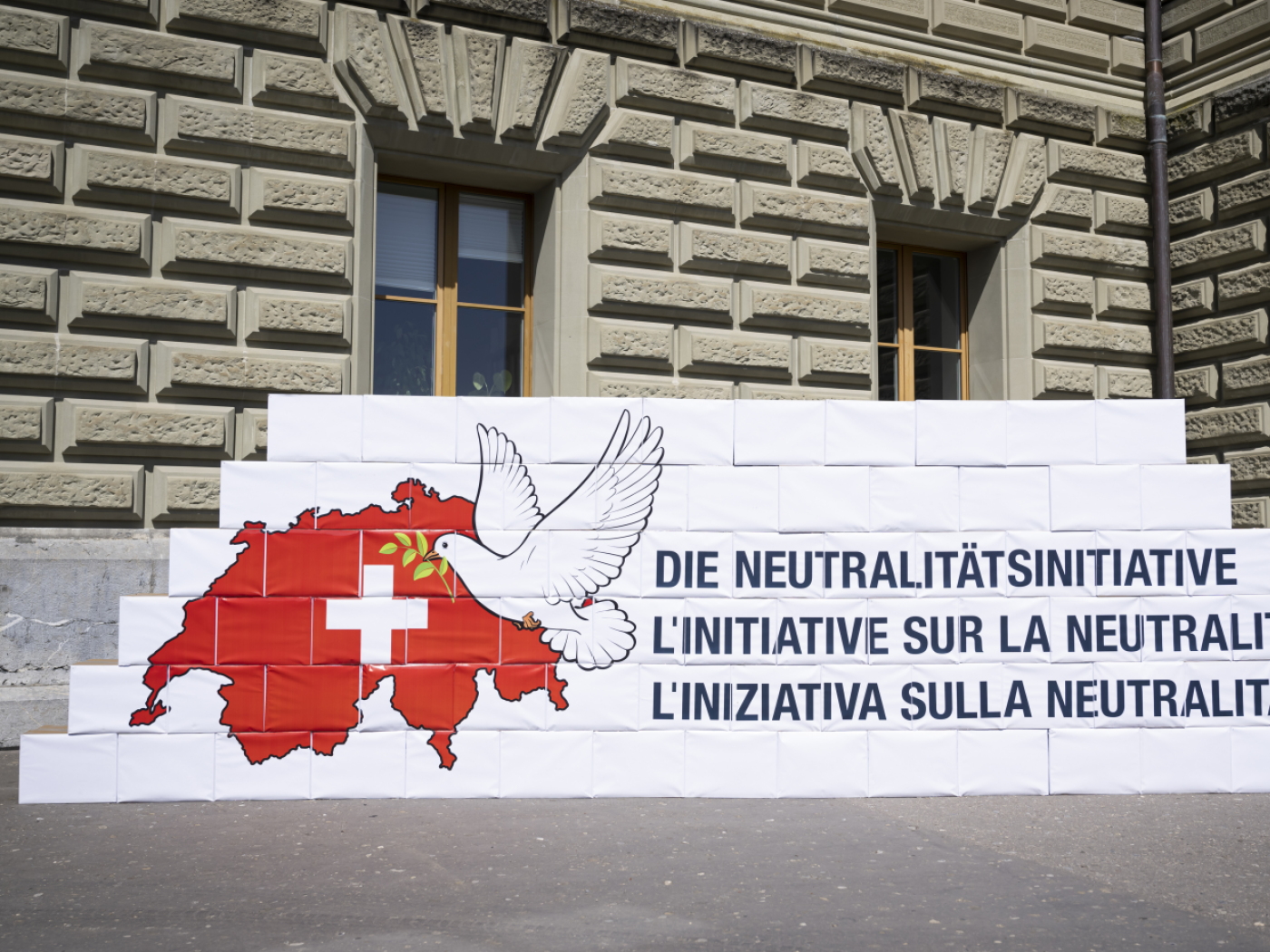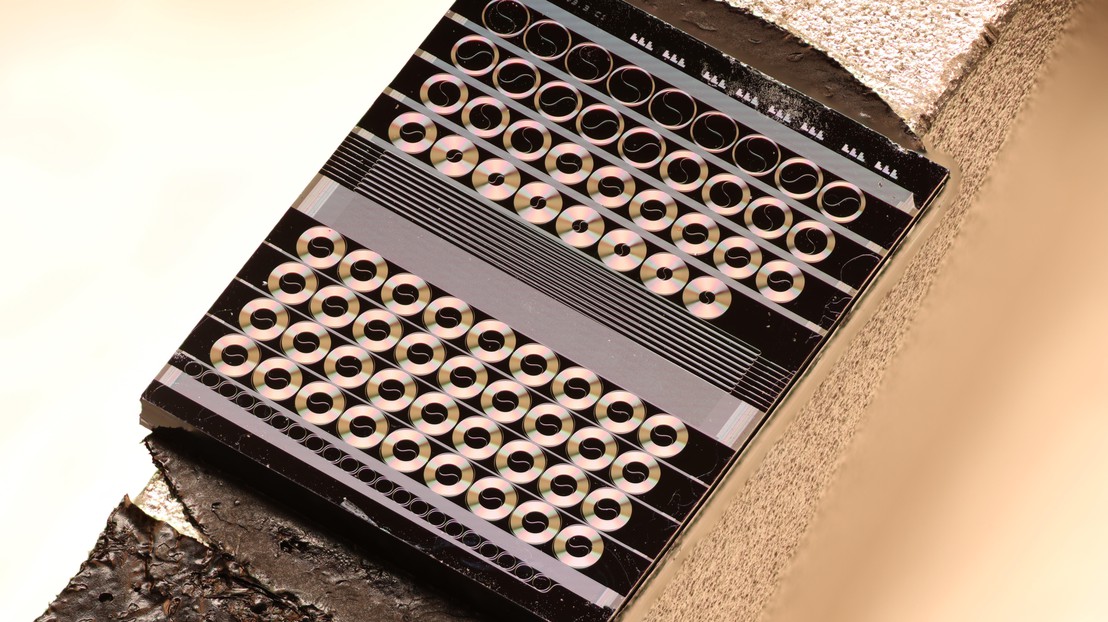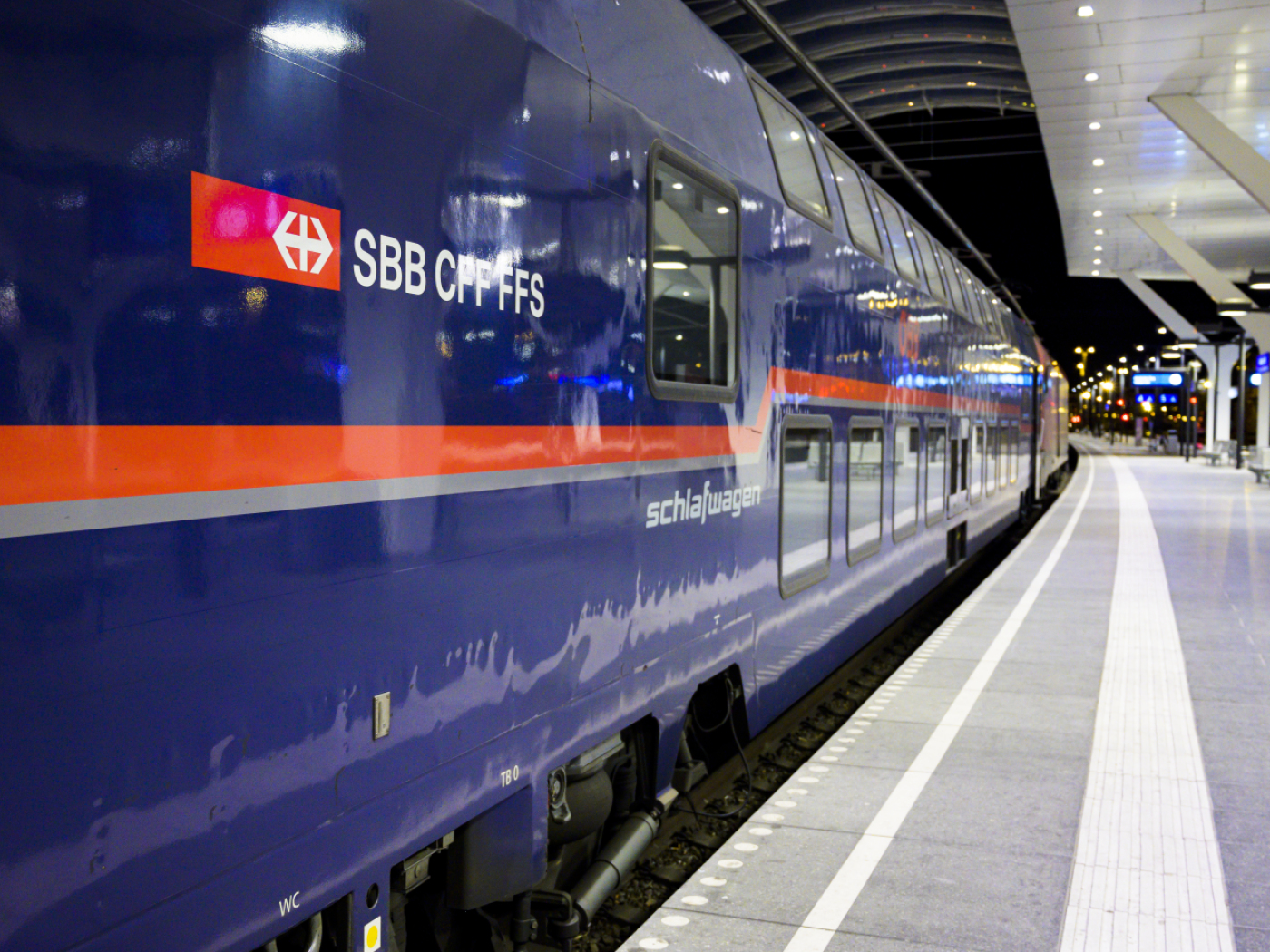
An atomic ‘tick-tock’ with Swiss technology heads to space to test the Einstein effect

On Monday, the European Space Agency (ESA) launched the ACES set of atomic clocks. It will be docked to the International Space Station (ISS) to measure the effect of gravity on the passage of time. Switzerland was involved in the atomic clocks.
+ Get the most important news from Switzerland in your inbox
Space X’s Falcon 9 rocket, carrying ACES, lifted off from Cape Canaveral in Florida at 10:15 am (Swiss time) on Monday. It will head for the ISS, 400 km up, where a robotic arm will position it outside the station on the Columbus module. It will remain there for 30 months to collect clock data.
Present in “all physics equations”, time is essential to the operation of computers and satellite geolocation systems, as Simon Weinberg, head of the ACES project at ESA, pointed out ahead of the launch.
Einstein’s revolution
In 1915, Albert Einstein revolutionised our view of time, which until then had been considered universal and absolute. In his theory of general relativity, he predicted that time was not the same everywhere and slowed down in the vicinity of a massive object.
On Earth, time passes faster at the top of the Eiffel Tower than at its base, but this “Einstein effect” is infinitesimal. On the other hand, it becomes perceptible as we move further into space.
Orbiting at an altitude of 20,000 km, the atomic clocks on geolocation satellites are 40 microseconds faster each day than those on Earth.
The aim of the European mission is to improve the measurement of this ‘gravitational shift’ by two decimals, to an accuracy of one millionth, using the two atomic clocks in the ACES ensemble.
Swiss instrument
The first clock, the SHM (Space Hydrogen Maser) instrument, was manufactured in Switzerland by Safran Time Technologies in Neuchâtel. It is an active hydrogen maser, a device that uses hydrogen atoms to tell the time, according to the State Secretariat for Education, Research and Innovation (SEFRI), whose head Martina Hirayama was to attend the launch.
A maser is a device for emitting a coherent beam of microwaves, used in particular to obtain the reference frequency for atomic clocks. It works in a similar way to the passive masers used on board the Galileo satellites, but is ten times more stable.
The ACES clock signal will combine the stability of SHM over a period of one hour with the long-term stability and accuracy of the second clock, PHARAO, designed by the French Centre national d’études spatiales (CNES). Together, these two clocks can tell the time with an accuracy of one second over 300 million years.
The clocks information will be transmitted to the ground via a microwave link. On Earth, nine terminals (in Europe, Great Britain, Japan and the United States) will compare it with the time measured by their own clocks.
A new window
The differences will be analysed to “determine whether the result is in line with the predictions of the theory of relativity”, explains Philippe Laurent, head of ACES/PHARAO activities at Paris Observatory. If not, “a new window will open in the world of physics”. Physicists will have to make adjustments to bring Einstein’s equations into line with observations.
And perhaps make progress in the quest for physicists’ Holy Grail: reconciling general relativity, which explains how the Universe works, and quantum physics, which governs the infinitely small. Two theories that work remarkably well, but have until now been incompatible.
Adapted from French by DeepL/jdp
How we work
We select the most relevant news for an international audience and use automatic translation tools such as DeepL to translate them into English. An editor then briefly reviews the translation for clarity and accuracy before publication. Providing you with automatically translated news gives us the time to write more in-depth articles. The news stories we select have been written and carefully fact-checked by an external editorial team from news agencies such as Bloomberg or Keystone.
Did you find this explanation helpful? Please fill out this short survey to help us understand your needs by clicking hereExternal link.

In compliance with the JTI standards
More: SWI swissinfo.ch certified by the Journalism Trust Initiative














































You can find an overview of ongoing debates with our journalists here . Please join us!
If you want to start a conversation about a topic raised in this article or want to report factual errors, email us at english@swissinfo.ch.